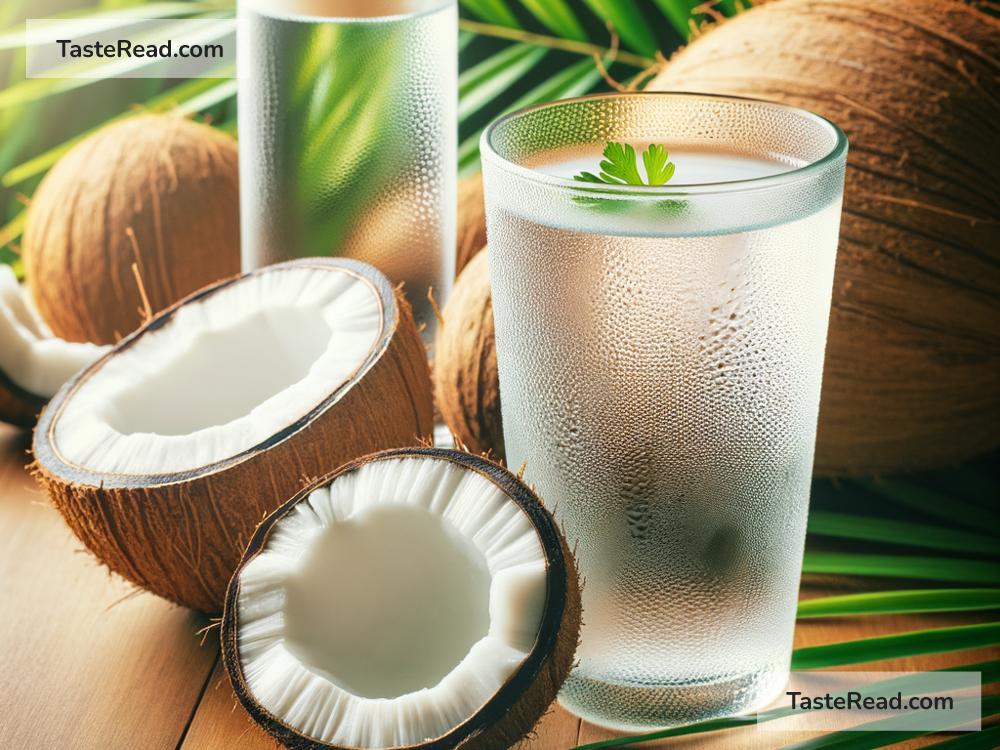Can Coconut Water Really Hydrate Better Than Plain Water?
Staying hydrated is one of the most important things we can do to keep our bodies healthy. Whether we’re exercising, working out in the sun, or just going about our day, drinking enough fluids helps us stay energized, focused, and feeling good. Among all the beverages available, plain water has always been the king of hydration. But in recent years, a new contender has entered the scene: coconut water.
Coconut water is often labeled as “nature’s sports drink.” It’s promoted as a healthier choice for hydration, boasting benefits like replenishing electrolytes, improving energy, and even hydrating better than plain water. But is this really true? Can coconut water replace plain water in your daily hydration routine? Let’s dive a little deeper into the facts, explained in simple terms.
What Is Coconut Water?
Coconut water is the clear liquid found inside young, green coconuts. It’s different from coconut milk, which is made by blending grated coconut flesh with water. Coconut water is naturally refreshing and contains nutrients like potassium, magnesium, calcium, and sodium. It’s low in calories, free of fat, and often tastes slightly sweet with a hint of nuttiness. Many people love drinking coconut water as a natural alternative to sugary sports drinks.
What Makes Water the Best Option for Hydration?
Plain water is essential for life. Our bodies are made up of about 60% water, and nearly every function in our body—from regulating temperature to transporting nutrients—relies on staying hydrated. Drinking water is the simplest, purest way to keep your hydration level in balance. It contains no calories, sugar, or additives, which makes it suitable for everyone. Plus, it’s widely available and inexpensive.
Water is absorbed quickly by the body and is the go-to choice for everyday hydration. Whether you’re quenching your thirst after a workout or simply topping up through the day, plain water delivers exactly what your body needs.
How Does Coconut Water Compare to Plain Water?
Coconut water offers something that plain water doesn’t: electrolytes. Electrolytes are minerals, like potassium, sodium, and magnesium, that help the body maintain balance and control important processes like muscle function, nerve signaling, and hydration. When we sweat heavily—during exercise or in hot weather—we lose electrolytes, along with water.
This is why coconut water is often advertised as a natural electrolyte drink. Its high potassium content is especially noteworthy; one cup of coconut water contains about 600 milligrams of potassium, much more than sports drinks like Gatorade. For athletes or people working outdoors in the heat, coconut water can help replenish both fluids and electrolytes that have been lost.
But it’s important to note that coconut water also contains sugar—usually around 6 grams per 8-ounce serving. While it’s natural sugar, it still adds calories. For everyday hydration when you haven’t been sweating a lot, plain water may be a better choice, as your body doesn’t need extra electrolytes or calories under normal conditions.
Is Coconut Water Better Than Sports Drinks?
Compared to commercial sports drinks, coconut water has its advantages. While sports drinks are often loaded with added sugars, artificial flavors, and dyes, coconut water is a natural alternative with fewer calories and no artificial ingredients. It’s also rich in potassium, which many sports drinks lack. However, sports drinks usually contain more sodium, which is crucial for replacing sweat during intense physical activity.
Coconut water might not provide as high an amount of sodium as professional athletes need, but for casual exercise or moderate activity, it can be a healthier choice than sugary sports drinks.
When Should You Choose Coconut Water?
Coconut water can be a great option in certain situations, such as:
- After a Workout: If you’ve been sweating heavily, coconut water can help replenish fluids and electrolytes.
- Hot Weather: On a hot day, when you’ve been sweating more than usual, coconut water can add a refreshing boost of hydration.
- For Flavor Variety: If you find plain water boring, coconut water can be a tasty alternative that encourages you to drink more fluids.
However, coconut water isn’t necessary as a daily hydration substitute for plain water. For low-intensity activities or general hydration, plain water is usually more than enough.
Are There Any Drawbacks to Coconut Water?
Coconut water doesn’t suit everyone. Its natural sugar content may not be ideal for people trying to limit sugar intake. And if you sweat excessively or engage in long, high-intensity workouts, the sodium in coconut water might not be enough to properly replenish your electrolyte levels. Athletes in these situations might need drinks with higher sodium content.
Additionally, coconut water can be pricey. A bottle of coconut water often costs significantly more than tap water or even bottled water. If you’re drinking coconut water daily, costs can add up quickly.
The Bottom Line
While coconut water is packed with nutrients and can help with hydration in certain situations, it’s not necessarily “better” than plain water. Both beverages serve different purposes. Coconut water is ideal after sweating and during light exercise, while plain water remains the best choice for everyday hydration. If you like the taste of coconut water and find it refreshing, there’s no harm in adding it to your routine. Just don’t forget about the simple magic of plain water, which is essential for your health and well-being—and won’t cost you extra.
So, can coconut water really hydrate better than plain water? The answer depends on your activity level, your hydration needs, and your personal preferences. Both options are great in their own way, and in most cases, you can enjoy the best of both worlds!


